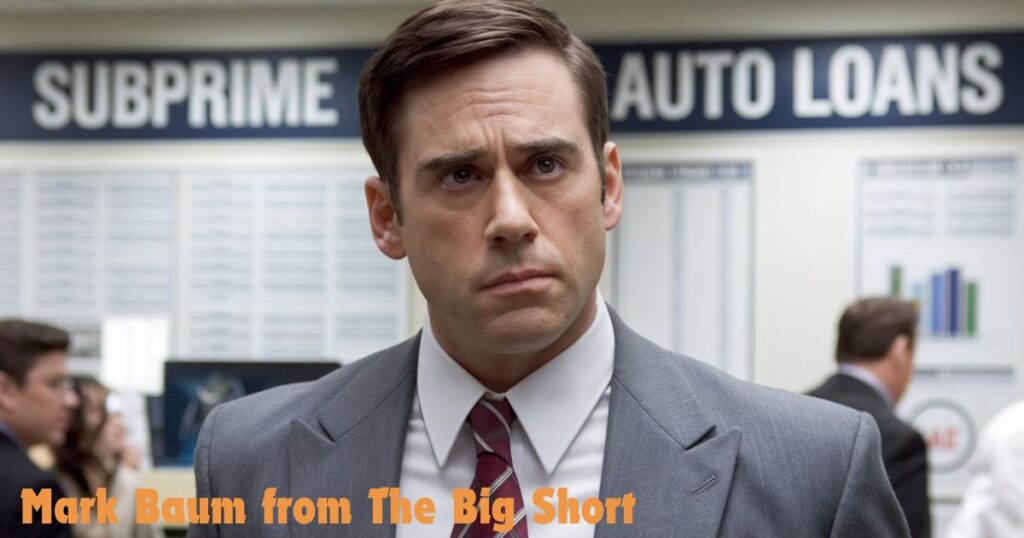In the critically acclaimed 2015 film “The Big Short,” directed by Adam McKay, one character stands out for his brash personality and prescient financial insights: Mark Baum, portrayed by Steve Carell.
But who is Mark Baum, and is he based on a real person? This article delves deep into the story behind this intriguing character, exploring the real-life inspiration and the impact of both the fictional and actual figures on Wall Street and beyond.
The Big Short: A Quick Recap
“The Big Short,” based on Michael Lewis’s 2010 non-fiction book of the same name, dramatizes the events leading up to the 2007-2008 financial crisis.
The film, starring Christian Bale, Steve Carell, Ryan Gosling, and Brad Pitt, was released by Paramount Pictures in December 2015 to both critical and commercial success.
It grossed $133 million worldwide and won the Academy Award for Best Adapted Screenplay.
Mark Baum, played by Steve Carell, is a key figure in the narrative. As a hedge fund manager, Baum’s character is credited with predicting the impending financial crisis by recognizing the instability of the subprime mortgage market.
His role in the film is central to understanding how a handful of investors saw the collapse coming when most of Wall Street remained oblivious.
Is Mark Baum Based on a Real Person?
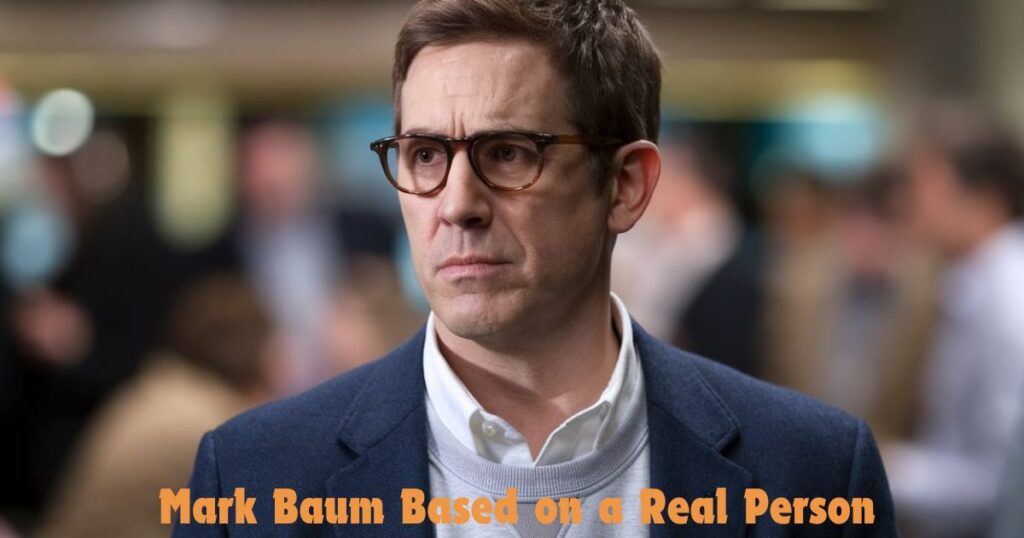
Yes, Mark Baum is based on a real person named Steve Eisman. Eisman requested that his name be changed for the film adaptation, leading to the creation of the Mark Baum character.
While the name is different, many of the key events and personality traits depicted in the film closely mirror Eisman’s real-life experiences during the lead-up to the financial crisis.
Steve Eisman, like his fictional counterpart, was a hedge fund manager at FrontPoint Partners LLC, a unit of Morgan Stanley.
During the mid-2000s, Eisman managed more than $1 billion and made a significant bet against subprime mortgages, correctly predicting the collapse of the housing market.
Who is the Real Mark Baum? Steve Eisman’s Background
Steve Eisman’s journey to becoming a Wall Street maverick began in New York City. Born and raised in the city, Eisman’s educational background is impressive:
- Bachelor of Arts degree from the University of Pennsylvania
- Law degree from Harvard Law School
Despite his legal education, Eisman was drawn to the world of finance. His career path included several notable positions:
- Financial services analyst at Oppenheimer & Co.
- Managing director and senior financial services analyst at Chilton Investment Co.
- Portfolio manager at FrontPoint Partners LLC
It was at FrontPoint Partners, a hedge fund unit of Morgan Stanley based in Greenwich, Connecticut, where Eisman made his most significant mark on Wall Street.
Read This Post: Orlando Magic vs Cleveland Cavaliers match player stats
What Was Mark Baum’s Role in The Big Short?
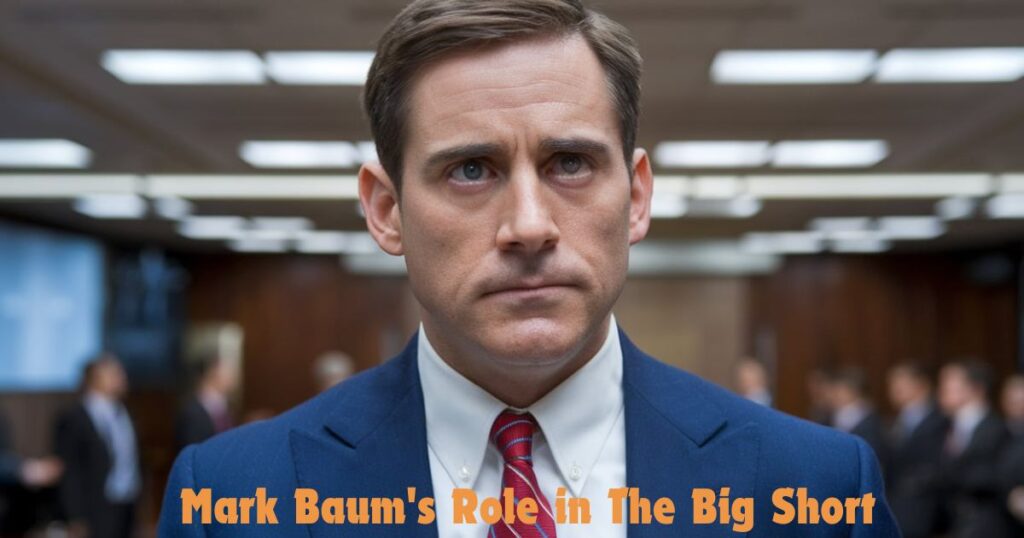
In both the film and real life, Mark Baum (Steve Eisman) played a crucial role in identifying and profiting from the subprime mortgage crisis. His key actions included:
- Investigating the housing market: Baum/Eisman conducted extensive research into the subprime mortgage industry, uncovering widespread fraud and misrepresentation.
- Shorting CDOs: Based on his findings, he took significant short positions on collateralized debt obligations (CDOs) tied to subprime mortgages.
- Warning others: Baum/Eisman attempted to alert others in the financial industry about the impending crisis, often facing skepticism and ridicule.
The film dramatizes Eisman’s journey of discovery, showcasing his growing disbelief and anger as he uncovers the extent of the housing bubble and the potential for economic catastrophe.
Steve Eisman’s Crucial Predictions
Steve Eisman’s analysis of the housing market in the mid-2000s was remarkably accurate. His key insights included:
- Recognizing that the quality of mortgages had declined significantly
- Identifying the flaws in how rating agencies assessed mortgage-backed securities
- Predicting that the interconnectedness of financial institutions would amplify the crisis
Despite his warnings, many of Eisman’s peers and industry experts dismissed his concerns. This skepticism is vividly portrayed in “The Big Short,” with Mark Baum often facing incredulity and hostility when sharing his views.
How Accurate is Steve Carell’s Portrayal of Steve Eisman?
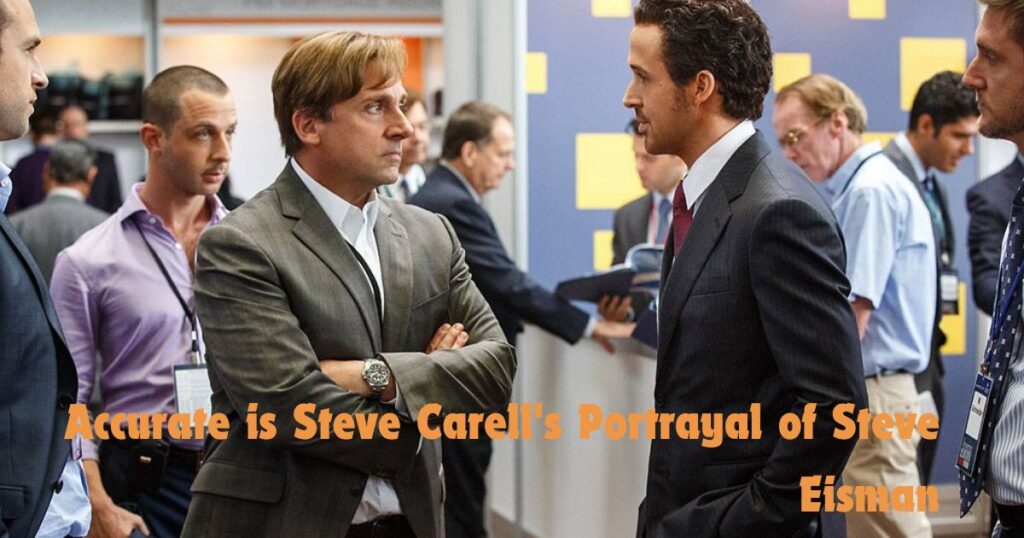
Steve Carell’s portrayal of Mark Baum in “The Big Short” has been widely praised for capturing the essence of Steve Eisman’s personality and demeanor. Key aspects of the portrayal include:
- Bluntness: Carell depicts Baum/Eisman as direct and often abrasive in his interactions.
- Moral outrage: The character’s anger at the systemic failures and corruption he uncovers is a central theme.
- Analytical mind: Baum/Eisman’s ability to see through financial obfuscation and identify underlying trends is highlighted.
Eisman himself has commented on the accuracy of the portrayal. In interviews, he’s noted that while some aspects were dramatized for the film, Carell captured many of his core personality traits.
“Even on Wall Street people think he’s rude and obnoxious and aggressive,” – Valerie Feigen (Eisman’s wife)
This quote, attributed to Eisman’s wife (portrayed as Cynthia by Marisa Tomei in the film), underscores the accuracy of Carell’s somewhat abrasive portrayal.
The Aftermath: What Has Steve Eisman Done Since The Big Short?
Steve Eisman’s career has taken several turns since the events depicted in “The Big Short”:
- Departure from FrontPoint Partners: Eisman left FrontPoint in 2011, following the financial crisis.
- Founding Emrys Partners: In 2012, Eisman founded his own hedge fund, Emrys Partners, with $23 million in seed capital.
- Closure of Emrys Partners: Despite his previous success, Emrys Partners struggled to perform, and Eisman shut it down in 2014.
- Joining Neuberger Berman: Eisman then joined Neuberger Berman as a managing director and senior portfolio manager for the Eisman Group within the Private Asset Management division.
Throughout these career moves, Eisman has remained a vocal commentator on financial markets and regulation.
How Much Did Mark Baum (Steve Eisman) Make from The Big Short?
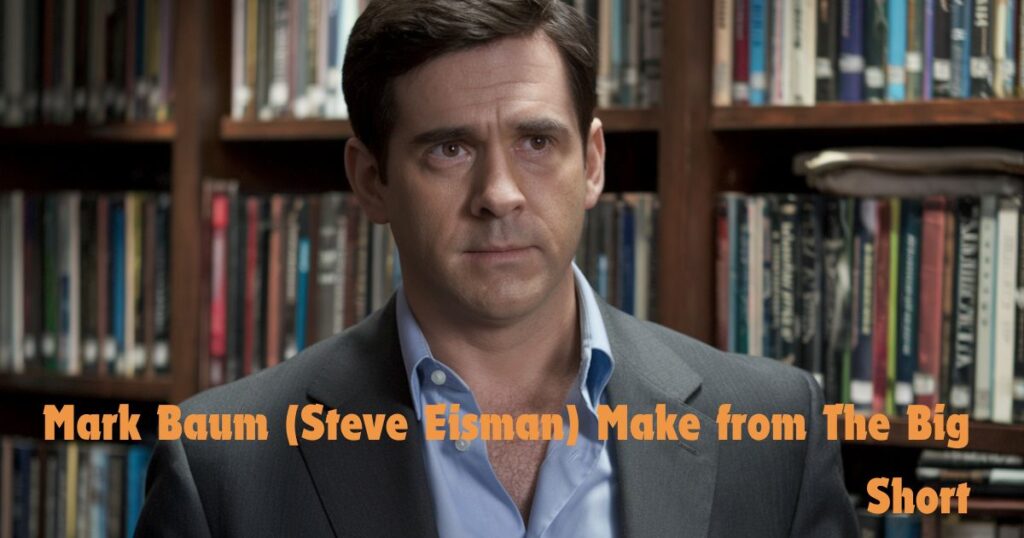
While exact figures are not publicly available, it’s estimated that Steve Eisman and his team at FrontPoint Partners made hundreds of millions of dollars by shorting the housing market. The profits were significant:
- FrontPoint Partners’ assets under management grew from about $700 million to $1.5 billion during the crisis.
- Eisman’s fund reportedly returned 81% in 2007 alone.
However, it’s important to note that these profits came at a time of immense economic suffering for many Americans. This ethical dilemma is explored in both the book and film versions of “The Big Short.”
What Happened to Mark (Steve Eisman) After The Big Short?
In the years following the financial crisis, Steve Eisman has:
- Continued to work in finance, albeit with mixed success in his ventures.
- Become a sought-after speaker and commentator on financial markets.
- Advocated for stronger financial regulation to prevent future crises.
Eisman has also used his platform to warn about potential risks in the financial system. For example, he has expressed concerns about the growth of passive investing and the potential for systemic risks in certain emerging markets.
The Legacy of Mark Baum and Steve Eisman
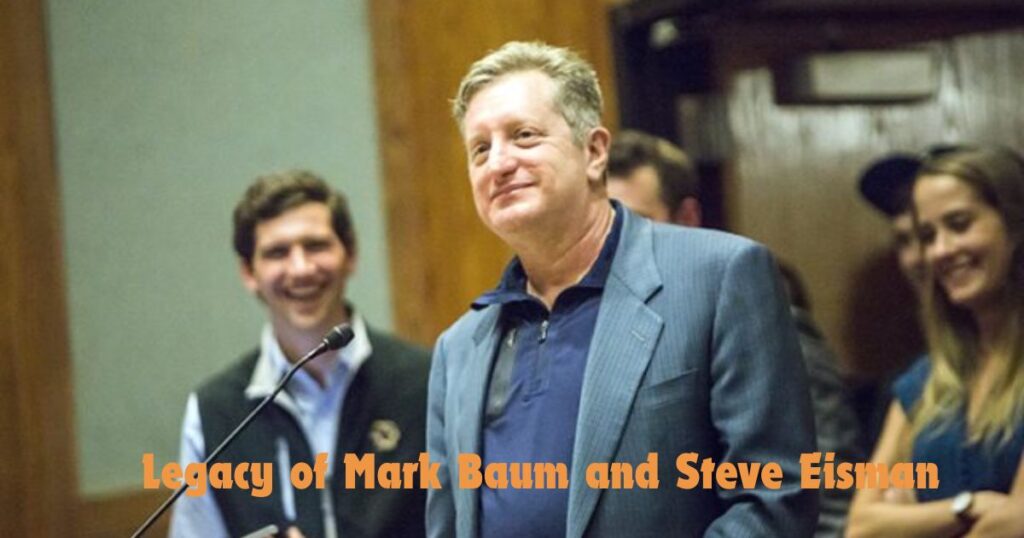
The impact of Steve Eisman, immortalized as Mark Baum in “The Big Short,” extends beyond his personal financial success:
- Regulatory Impact: Eisman’s warnings and subsequent vindication contributed to the push for stronger financial regulations, including the Dodd-Frank Wall Street Reform and Consumer Protection Act.
- Public Awareness: Through “The Big Short” book and film, Eisman’s story has helped educate the public about the complexities and risks of the financial system.
- Wall Street Culture: Eisman’s outspoken criticism of Wall Street practices has contributed to ongoing debates about ethics and responsibility in the financial industry.
Read This Post: Untold Story of Marilyn Kroc Barg
Conclusion
Mark Baum from “The Big Short,” inspired by the real-life Steve Eisman, represents a pivotal figure in understanding the 2007-2008 financial crisis.
Through his astute analysis and willingness to challenge conventional wisdom, Eisman not only profited from the crisis but also played a crucial role in exposing the systemic failures that led to it.
The story of Mark Baum/Steve Eisman serves as a reminder of the importance of critical thinking and the courage to stand against the crowd, especially in the complex world of finance.
As we continue to face new economic challenges, the lessons from Eisman’s experience remain relevant, underscoring the need for vigilance, thorough analysis, and ethical considerations in our financial systems.

Hello, I’m Dan Brown, a writer at Matchplayerstat. I explore the dynamic world of players and celebrities, delivering captivating insights and updates. Join me on Matchplayerstat.com for the latest in player stats and celebrity news.”
